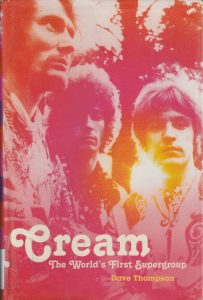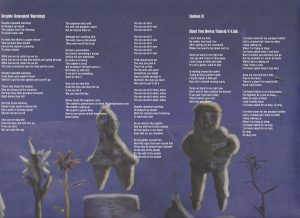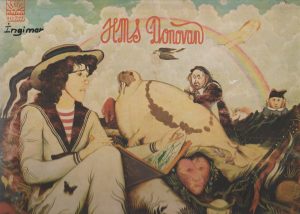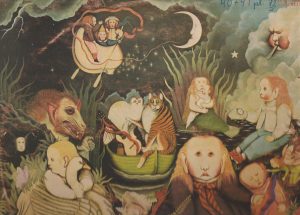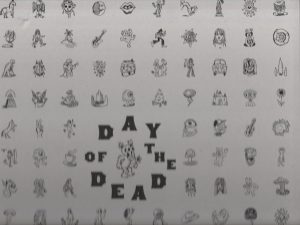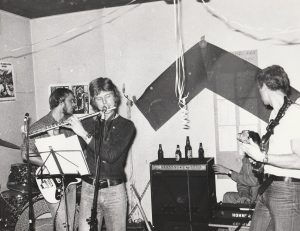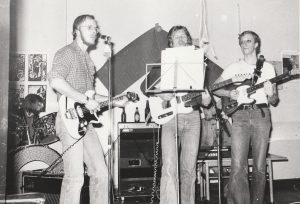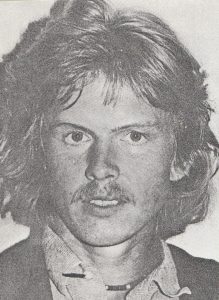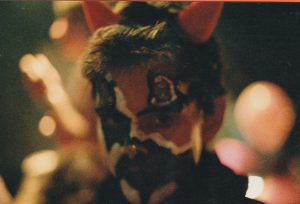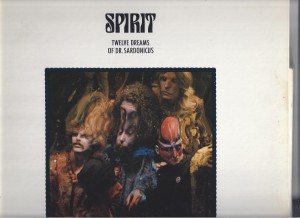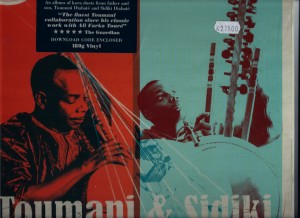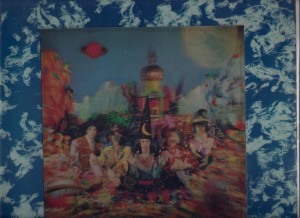
Cream once more
Reading Dave Thompson: Cream – the world’s first supergroup. Virgin books, London, 2005
I put on some relevant vinyl albums, to test his hypotheses.
The band sounding very good indeed on live concerts, Thompson claims. I put on Live Cream, volume 2 (RSO 2394 155) – yes this is true. On some tracks they sound better live, than on their studio albums. Do they need an organ (which they worried about) – no. I note that bassist Jack Bruce takes over much of the stage, and yet this is contested by the two others – as interpreted by Thompson.
In some long instrumental tracks, Clapton mainly plays with Ginger Baker (on drums) while Jack Bruce (bass, vocal) shuts up. Baker heightens Clapton’s playing beautfifully, increasing energy and light and darkness where needed.
I listened to the “Beano” album (1966), and then John Mayall’s solo album (1967).
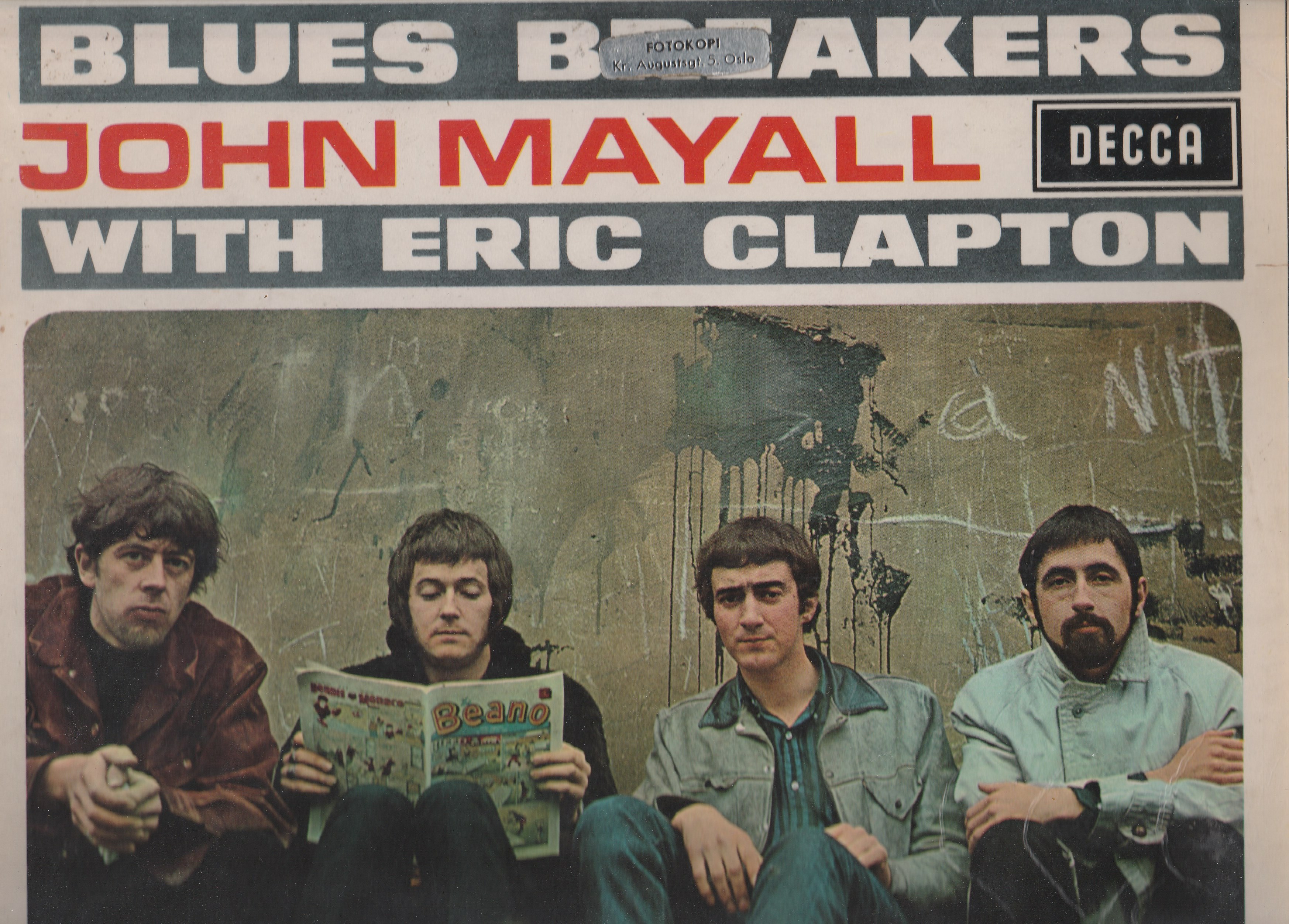
Again, Thompson’s interpretations are in line with mine. Thompson’s first 70 pages are focused on the UK blues scene before the arrival of Cream. This is very useful, and spot on, as far as I can tell.
Example: I first heard the Beano album way back when, with my cousins, in ca 1969, on a small Phillips Bambino record player. Even with this tiny player, we were mesmerized by the tone of Clapton’s guitar, from opening track “All your love” onwards.Thompson details how Clapton had to struggle, to get this “overdone” guitartone accepted, in the recording.
Cream was created as very fragile compromise (the group only lasted two and a half years) going beyond the music up to that date (1965-66). It was like opening a time window.
When the group got lyrical assistance from Pete Brown, they started the venture. They strutted their musical stuff on the debut album Fresh Cream (1966), but their main progressive thrust forward was the next Disraeli Gears album (1967), followed up by the halfway succesful double album Wheels of fire (1968) and the so-so Goodbye album (1969).
Thompson does not note that some of Mayall’s songs were pro-feminist. Or at least, proto-feminist, compared to the standards of the day.
On the Mayall and Clapton “Beano” album, his song “Little girl” is about a woman who has lived 18 years in bad relations. Mayall is out to rescue her. Is it “pastiche” or just riding with the options of the day? Maybe somewhat, but on the Blues alone album, a bit later, he is more explicit, on this front – especially in the “Broken wings” song, maybe the best on the album.
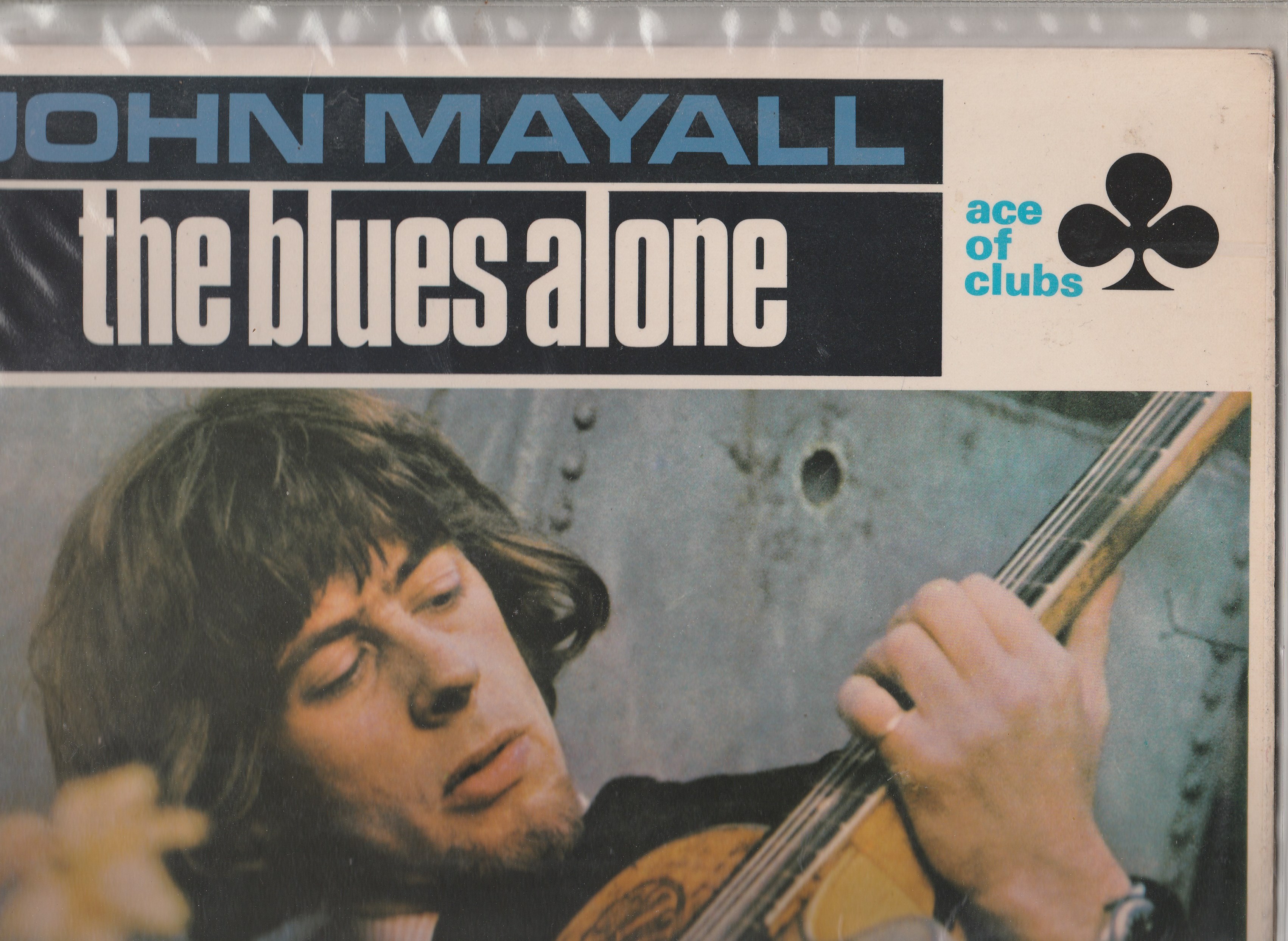
“Somebody broke your wings”, he sings, telling the story of a woman. Mayall does not try to intervene as savior. Instead the song is a beautiful attempt to do what Kate Bush (Hounds of Love, 1985) called for later – if I could be in your shoes, climbing up that hill – trying to be in the other person’s place. Shifting the gender perspective. Reminding me of Donovan – although the two started from different musical grounds (folk vs blues).
Another follow-up of the pre-Cream scenery detailed by Thompson was the band Colosseum, with Jon Hiseman on drums. I would not say he is better than Ginger Baker in Cream – rather, he is (at his best) in this same “creamy” class, like in their most well-known prog rock cut, “Those who are about to die”. Here, you can hear many jazz-rock attempts get to frutition, based on a good prog song concept, and – not least – the drummer Hiseman propelling the band forwards. The great horn-blower Dick Heckstall-Smith and the others get air under their wings.
This is a song about – basically – freedom from slavery. Other songs were about freedom from other forms of oppression. Including gender oppression. This was the spirit of the time.
This social awareness – in my opinion – was what pushed the music forwards – opening the “time window”.

Paul McCartney’s Egypt station lights up like nova and will become a classic record.
Yes some songs (like Fuh you) are silly and in the “old man gets it up” category. But they are made with a joke. They are parts of a serious album of surprising strength. Made in senior days, reminding me of Dylan’s Time out of mind, showing what a great artist Paul McCartney is, beyond any form of classification; inventive and communicative. Even in his vaudeville and sing-along songs on the album, there is a coherence and sense that it fills a whole. “If you come on to me I will come on to you”. There is an old man trying to get it all on record, before he dies.
The nadir is Despite repeated warnings, a small symphony, and the best potential single is Dominoes. It all works up to a coherent unity. Listening to the album, I found it did not leave me, it would not let go. Over time, different songs on the album came into my mind. A grower, like they say.

HMS Donovan
This is one of the unknown treasures from way back then – 1970. Donovan was taking a shot at Sgt Pepper, starting from children’s songs. The music is just as amazing as the cover.
Donovan is an underrated artist, part of the youth revolution in the 1960s, and though somewhat “cosmological”, also quite wise (followed up e g in Sutras, 1996). His best guitar work is unmatched to this day, and shines through here.
Donovan, just with his voice and acoustic guitar, can take you away – like no one else.

Maybe, the Grateful Dead were better doing free flow improvisation like on Dark Star. Or doing country rock. Yet Terrapin station struck me hard when I first heard it, this was a serious try to summarize counterculture events, when it was released in 1977. Involving an extended orchestra, choir, rhythm section, going beyond what was formerly seen as possible. I was very impressed. The concert – it is a mini concert – never left my mind. Like what some biologists call a “meme”. Once you hear it you wont forget it. At least not, if you are a musical person. It is quite demanding. I know people who heard it but could not relate to it. Too much for them, I think..
Now, Terrapin station has been remade, in today’s climate, using today’s musicians – in very interesting ways.
I have it as part of a 10xLP box, called Day of the dead.
What is it about? The lyrics are diffuse. My short hand is “therapy”. I think this works rather well. “His job is not to master but shed light” – and so on.
Recording such a big-volume many-player piece of music is difficult. The new recording is somewhat distorted, not optimal, on the loudest parts of the music. Other tracks on the LPs in this box, with less high demand for volume, have less problems.

My loft is a mess. Recently I found some pictures from way back when.
In the 1970ies I was a member of the folk rock band Samvirkelaget. I also played with other groups. Here, I play flute on a student concert, 1979.
I was never that good on guitar, but could play my own songs, also.
In 1981, I published a book on the gender market (Sjekking, kjærlighet og kjønnsmarked), which sold well in Norway, and later in Sweden (1983). A press photo from that time:
In 1984, I was a participant in the Oslo carnival.
Not sure exactly what we were doing, but I remember that we were hoping to bring back more of the ‘1968 spirit’.

Question: What were the best albums following up the message of the Beatles, on Sgt Pepper and other albums?
My answer:
There were many good follow-ups of course, due to the seminal nature of the Beatles effort.
I think the Spirit album “Twelve Dreams of Dr Sardonicus” is one of the best, balancing right at the edge of the 1960s and 70s music styles and social sentiments.
Q: Why so?
A: The whole framework is marvellously forwards and questioning, and the setup is great. For example, Mr Skin is a rock “plus” type of song. Some forward reflection too. Very good. Critical pop journalism abounds on the album. Together with good melodic writing, arrangement and production. When the songs are forwards into the 70s, like Nature’s Way, they are not too overblown. A prescient album, in many ways. In my rating, a classic.
Memorable lyric:
We got nothing to hide
Married to the same bride
Source: Epic LP Bl 30267, cover:
I found a graphic interpretation of this album here.
The music sounds great on vinyl, better than the digital versions I have found on the web.

Here are three great LPs discovered recently:
Toumani and Sidiki – father and son playing koras – dreamlike, lifelike, rythmic (all the more flowing, without percussion or drums). Showing how world music is coming of age, this is a new classic.
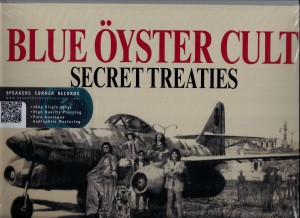 Blue Oyster Cult: Secret Treaties (1974), reissued by Speaker’s Corner 2014. This album was actually censored in Germany when it appeared, with the picture of the Nazi jet plane and the group shown as pilots. Turned out, most of the group were Jews! Patti Smith was involved in the lyric writing. A great rock album. Speaker’s Corner has done it again – this reissue has better sound than the original.
Blue Oyster Cult: Secret Treaties (1974), reissued by Speaker’s Corner 2014. This album was actually censored in Germany when it appeared, with the picture of the Nazi jet plane and the group shown as pilots. Turned out, most of the group were Jews! Patti Smith was involved in the lyric writing. A great rock album. Speaker’s Corner has done it again – this reissue has better sound than the original.
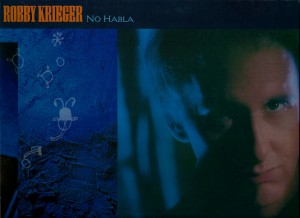 Robby Krieger: No habla (1989). I got this second-hand. How come, the Doors disappeared so fast into non-interesting music (or muzak, superficial entertainment), after Jim Morrison died? This record, made long after the event, shows the same pattern. The two Doors numbers (Wild Child, You’re Lost Little Girl) are great, the rest is so-so. This LP strengthens the argument: You need content in music, if not, it won’t pay off. Even revolutionary content, like Jim Morrison provided. Krieger’s playing on You’re lost…. is just heartbreaking. Wish you were here, Jim.
Robby Krieger: No habla (1989). I got this second-hand. How come, the Doors disappeared so fast into non-interesting music (or muzak, superficial entertainment), after Jim Morrison died? This record, made long after the event, shows the same pattern. The two Doors numbers (Wild Child, You’re Lost Little Girl) are great, the rest is so-so. This LP strengthens the argument: You need content in music, if not, it won’t pay off. Even revolutionary content, like Jim Morrison provided. Krieger’s playing on You’re lost…. is just heartbreaking. Wish you were here, Jim.

Klaus Schultze: Audentity (1983). Innovative communication KS 800025-26 (2xLP – photo: signed copy, bought at Ringstrom in Oslo, August 2014).
The title may be a little pretentious, but this is a very good double album.”Audentity” – well, in a sense, yes, it is about audio identity. The songs are symphonic works, up to 31 minutes per LP side. The musicians are really allowed to stretch out.
Instead of poor orchestration (typical of progrock etc), we just get Schultze (“computer and keys, program”) and Rainer Bloss (“sounds, Glockenspiel”) doing several synth voices, replicating an orchestra, and if this is a little limited, it is also often rewarding and fresh. Moreover instead of a drum machine we get Michael Shrieve, excellent on drums as always. Besides Schultze, the album’s biggest surprise is Wolfgang Tiepold on cello, who offers much of the orchestrated feel, playing stellar complex cello along the way.

The Beatles is a major indicator, for this purpose, 1963 onwards.
They were the greatest thing happening for music, at the time. Artists and producers tried to succeed, according to new standards set by the Beatles.
At this date – February 14 – i do not have a full data material on the Beatles. However I have some material.
One analysis of the way “love” is treated in Beatles songs, suggesting three main periods:
1 Mixed – communal. E g She loves you, which not only tells of a woman active, loving a man, but another man, lovingly giving the message. A mega hit of all time, due to this special angle.
2 More troubled – from I feel fine, to Ticket to ride – also gradually, more private, less communal or collective. Increasing misogynism.
3 More reflective – from All the lonely people, She’s leaving home, and onwards. Less directly realist, more widely experiental. Reduction of misogynism.
Later we heard J0hn the main Beatle like he was divorced, Paul happy with Wings, and so on. But I think these were the three main Beatle stages.

“Why don’t we sing this song all together
Open our minds let the pictures come
And if we close all our eyes together
Then we will see where we all come from”
There is not much misogynism that I can hear, on this LP, with the demanding title: Their satanic majesties request. This album was released later in 67, after the three albums described in my first blog post on this topic.
There is no mistake – they really tried to re-adjust their course. I have the original UK LP with the 3D cover. Mick in the center is visible from all angles while Brian is mostly invisible. Brian contributes much to the sound however, a bit like Eno, later.
Richie Unterberger, at Allmusic, writes: “Without a doubt, no Rolling Stones album — and, indeed, very few rock albums from any era — split critical opinion as much as [this ..] psychedelic outing. Many dismiss the record as sub-Sgt Pepper posturing; others confess, if only in private, to a fascination with the album’s inventive arrangements, which incorporated some African rhythms, Mellotrons, and full orchestration. What’s clear is that never before or after did the Stones take so many chances in the studio. (Some critics and fans feel that the record has been unfairly undervalued, partly because purists expect the Stones to constantly champion a blues ‘n’ raunch worldview.) ”
The album was not seen as successful. The opinion of the day, in the music press, was that the Stones should get back to their roots. They had been misogynist before – but in my interpretation, it was mainly after this “slap in the face” reaction to Their satanic… – and the death of one of their members – that they developed this into a more general “sneering attitude”. Thereby the band changed their direction (Sympathy for the devil), contributing to 1970s misogynism in rock music, beyond attitude, as staple fare.
After some years they tried to stop this, in their own records (e. g. You can’t allways get what you want, A fool to cry, Waiting for a friend, and others), yet it was not much heeded, since at the time, the Stones were gradually falling out of fashion. and had become marginal, to pop/rock in general.

